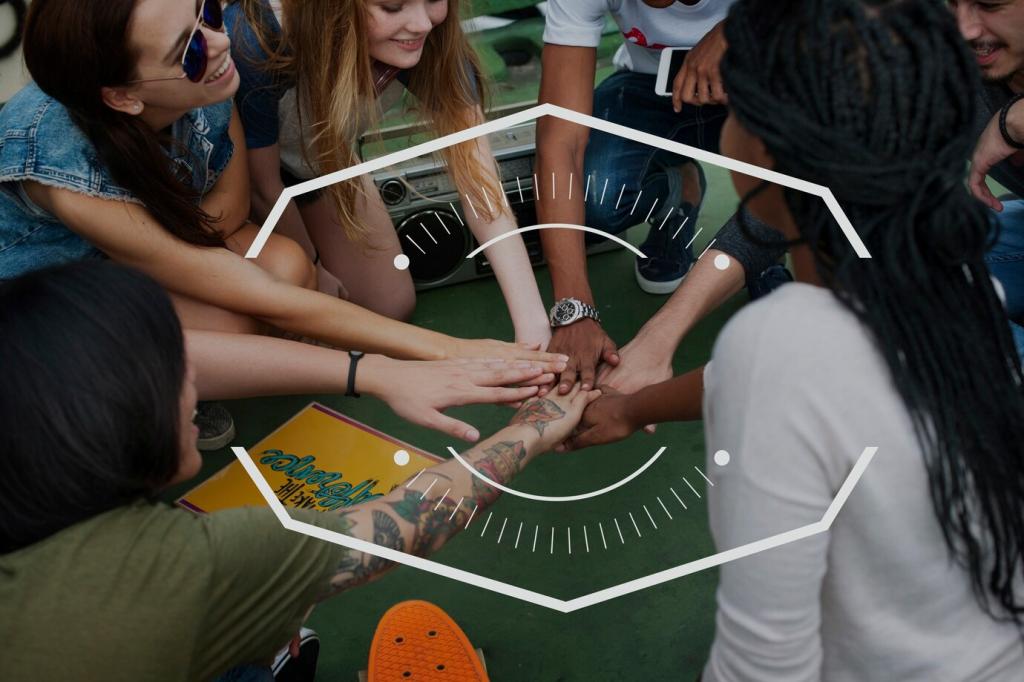
Team Bonding Games for Better Communication
Chosen theme: Team Bonding Games for Better Communication. Step into a playful space where simple, well-facilitated games transform trust, sharpen listening, and turn awkward silences into collaborative momentum. Join in, try a game today, and tell us how your team’s conversation changes.
Why Games Unlock Better Communication
The Brain on Play
When teams play, stress drops and attention rises. Laughter signals safety, curiosity kicks in, and people risk sharing fresh ideas. Communication becomes more candid because mistakes feel exploratory rather than career-defining moments.




Starter Games That Work in Any Office
Each person shares three statements about themselves, one untrue. The team asks clarifying questions before guessing. Curiosity grows, stereotypes soften, and people practice probing gently instead of jumping to conclusions.


Starter Games That Work in Any Office
Pairs sit back-to-back. One describes a simple image while the other draws without turning around. Debrief what made instructions clear, what confused, and how specific language changed the receiver’s understanding under pressure.
Remote-Friendly Games for Distributed Teams
On a shared topic, each person builds by starting with “Yes, and…”. Cameras on, mics unmuted if possible. The rule forces acknowledgment before adding, modeling respectful collaboration when opinions differ during remote planning.
Remote-Friendly Games for Distributed Teams
Begin meetings with one emoji explaining your current state and one sentence context. Teams learn to read emotional cues that video often hides, making difficult updates kinder and brainstorming sessions more attuned to mood.
Remote-Friendly Games for Distributed Teams
Create a short list: find something that represents focus, frustration, and success near your desk. Share stories quickly. Objects become conversation starters that reveal work habits and communication preferences without heavy questionnaires.
Games for Listening and Clarity
Mirroring Minutes
Partner A speaks for one minute about a challenge. Partner B mirrors back exactly what they heard, then asks one clarifying question. Roles switch. Teams feel deeply heard, and instructions become reliably clear afterward.
Telephone Remix
Instead of whispering, share a short written brief through a chain, with each person allowed one clarifying question. Compare the final version to the original. Notice where ambiguity crept in and how questions prevented drift.
Question-Only Challenge
Hold a two-minute conversation using only questions. It feels silly at first, but it trains patience and curiosity. Teams stop rushing to solutions and start discovering the real problem behind a vague request.
Conflict-Ready Collaboration Games
Give small groups limited resources—time blocks, budget chips, or team tokens—and conflicting priorities. They must build a plan, then justify trade-offs. Debrief language that kept debate productive versus phrases that escalated tension.

Conflict-Ready Collaboration Games
Pick a tough constraint: launch with zero budget, or ship with only two features. Teams generate options in timed bursts, narrating thinking out loud. Notice how explicit reasoning improves alignment and speeds decisions together.
Measuring Impact: From Laughter to KPIs
Count interruptions per meeting, decision time for small issues, and number of clarifying questions before action. If these improve after sessions, your communication muscles are strengthening through practice, not mere optimism.




